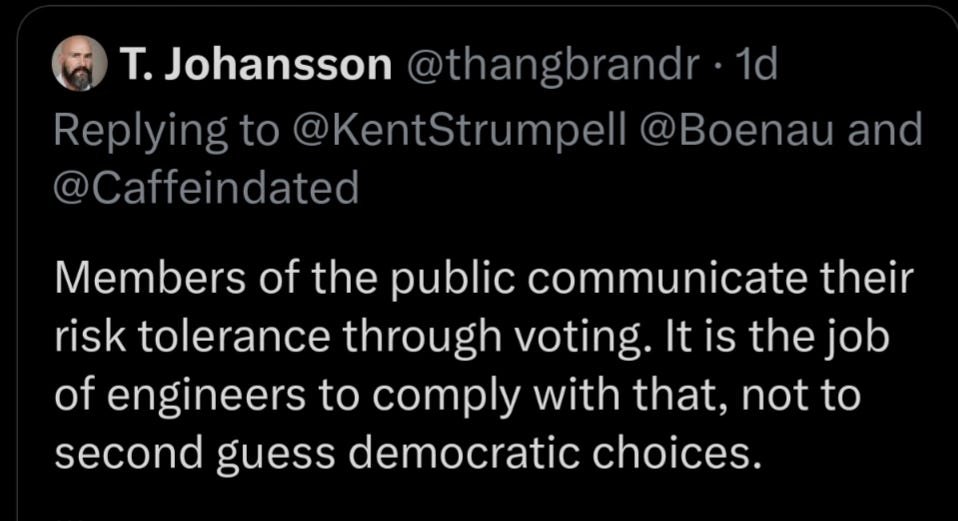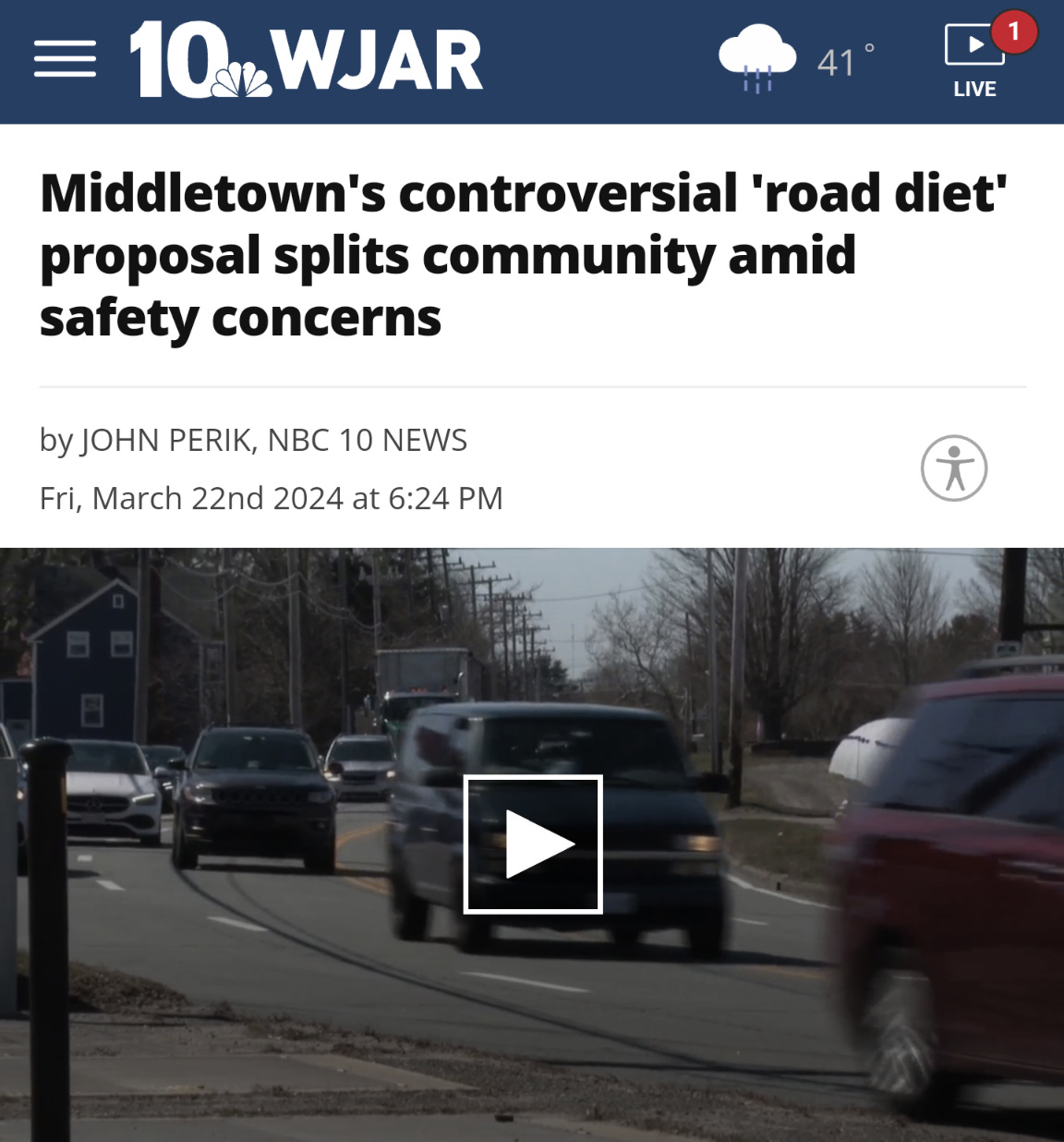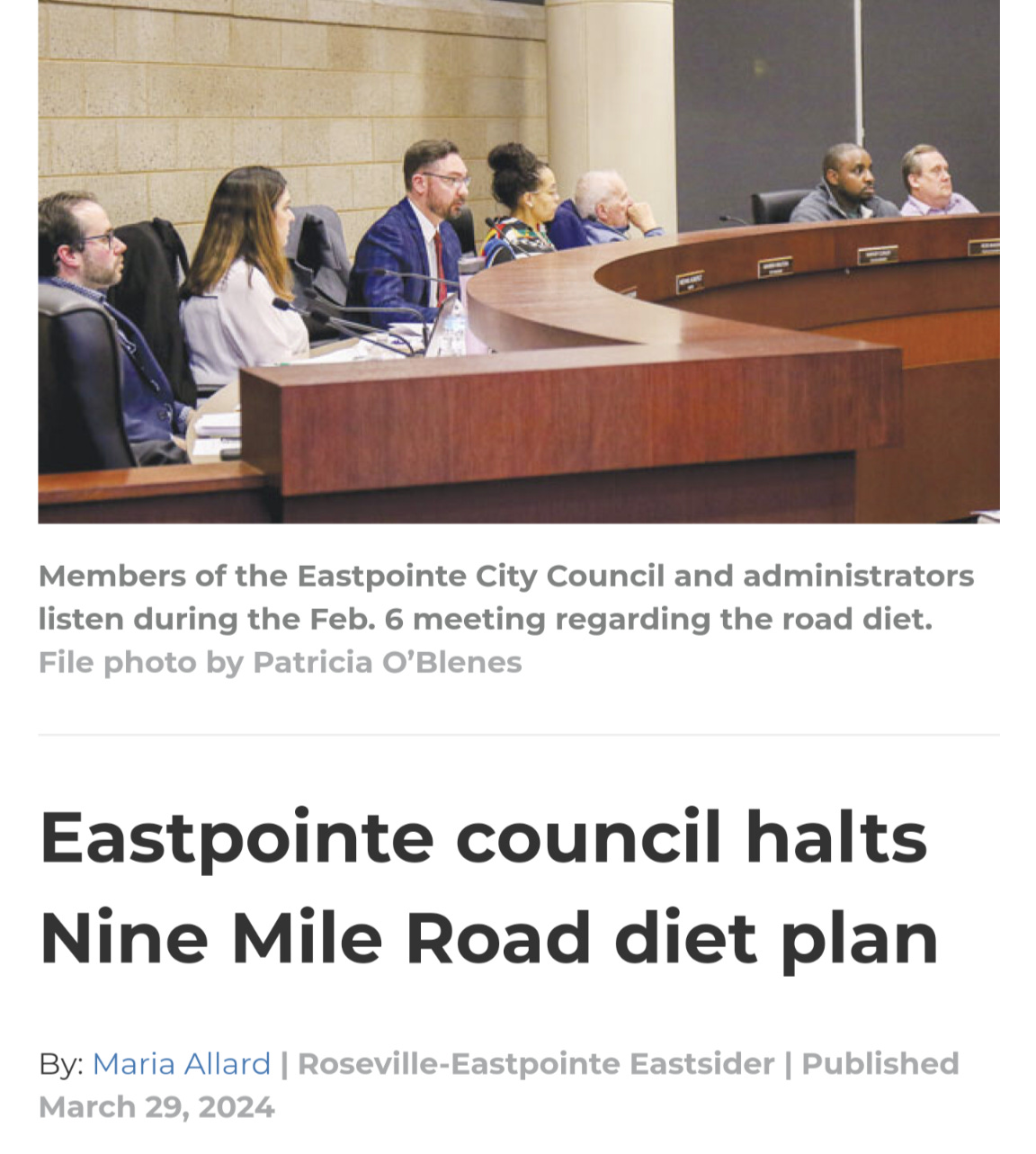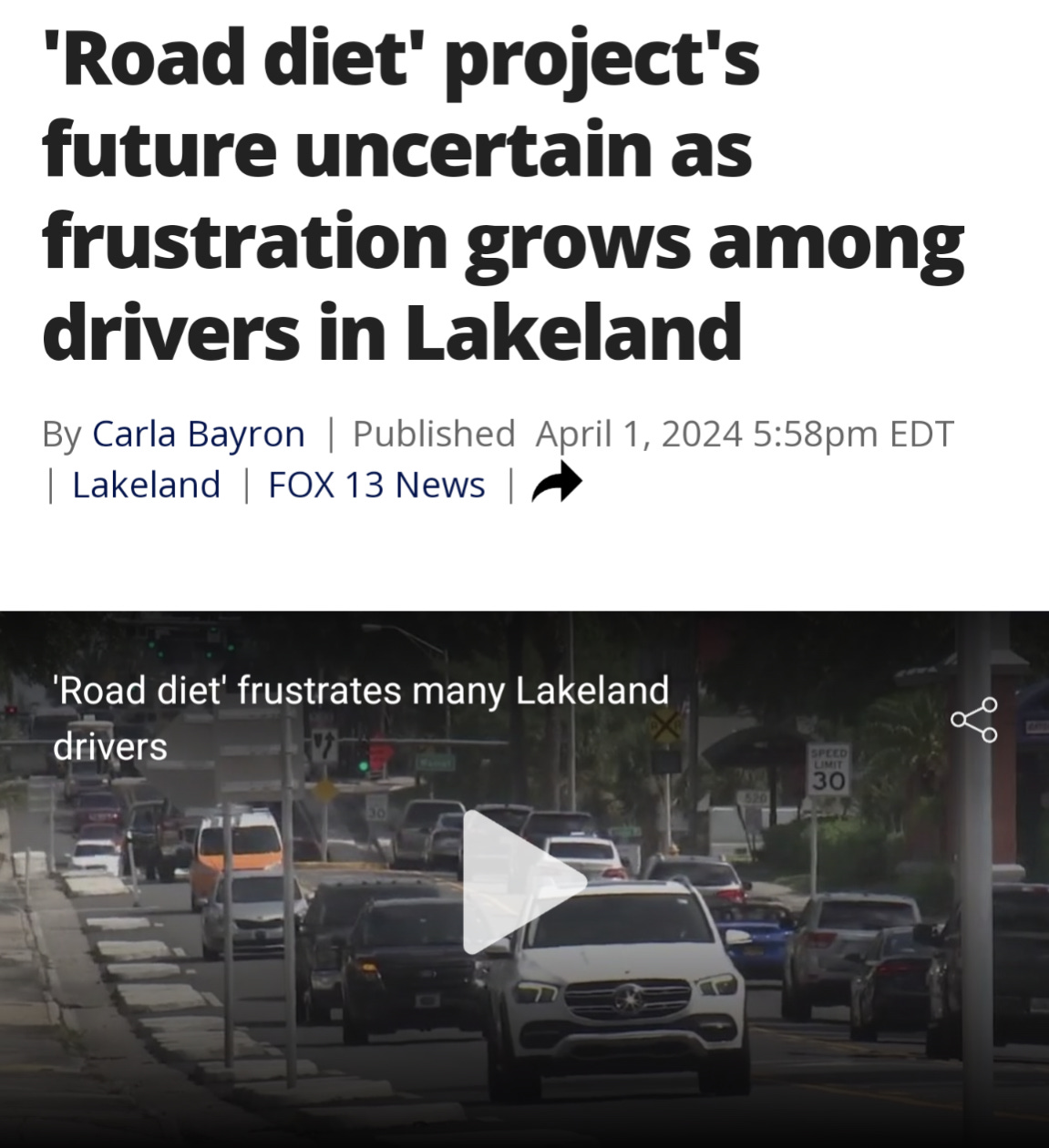"But democracy!" is an excuse to let innocents die
No community will reach Vision Zero by letting voters decide if driving convenience is more important than safety
Travelers want air travel to be safe. They aren't given vote or veto power about whether or not safety is a priority for airlines. They don't vote about how to design wings, doors, landing gear, and air circulation.
Travelers do vote with their wallet on routes, price points, seat location, flight duration, reliability, etc.
The same should be true with surface transportation. Travelers shouldn't get a vote or veto lane width, design speed, accessibility, multimodal accommodations, and other safe systems measures.
There's a visceral and childish reaction to label this outlook an “attack on democracy,” as if your life and my life should be up for discussion and a vote.
I get replies like this all the time:
This great quote has been attributed to Ben Franklin:
Democracy is two wolves and a lamb voting on what to have for lunch.
“I don't like traffic calming because calm traffic slows me down” carries more weight than “traffic calming will reduce the number of serious injuries and deaths.”
You might as well have your public works director issue this statement: “We thought about making this street safer, but some people in another neighborhood don't like it. Good luck out there.”
Every week you can read another story of a safety improvement killed by popular vote. Americans continually choose personal convenience over general safety.
In California, voters oppose safety improvements:
The lanes have been popular with parents of young cyclists — but criticized by sport cyclists who bike long distances and travel at higher speeds.
Critics said the barriers prevent them from exiting the bike lanes into vehicle lanes when they want to quickly pass a slower cyclist or avoid pedestrians or other hazards.
In Michigan, voters oppose safety improvements:
A large number of residents and business owners gathered at Eastpointe City Hall for the council meeting Feb. 6 to voice their concerns about the road diet. Many were against the idea, while a few were in favor of it.
Steve Gunn, whose son owns Wash Pointe Car Wash on Nine Mile Road, spoke about the project at the hearing of the public March 19. Gunn said that he surveyed customers about the possibility of a road diet on Nine Mile Road. Out of 376 people, 16 people liked the idea of a three-lane road, 20 people weren’t sure and 340 customers wanted the road to remain five lanes.
In Florida, voters oppose safety improvements:
The future of South Florida Avenue remains uncertain as leaders in Lakeland hear complaints about the so-called "road diet" that narrowed the busy street from five lanes to three.
Concrete barriers were installed, as well, but were supposed to only be temporary for a year. According to drivers, they've caused a lot of frustration because they impede traffic and people drive into them.
Stop asking if people want safety improvements.
Even though traffic fatalities are like a 9/11 every month, most people don't understand (1) traffic crash frequency, (2) how street design contributes to crashes, and (3) that tons of crashes are preventable. Preventable! Lives are forever damaged or lost altogether while public agencies lollygag with public opinion polls.
The better way to engage the traveling public is to teach them about Vision Zero, speed management, and crash reduction. Help the average person understand the importance of engineering, enforcement, and education. And as safety improvement options are developed, ask for comments and votes on those options.
In Indiana:
Officials say an estimated $20 million improvement will be made along Madison Avenue from Pleasant Run Parkway to Ray Street.
The city calls it a road diet. It’s taking that roughly two-mile stretch of Madison Avenue and reducing the lanes from three to two in both directions.
In Massachusetts:
DPW Commissioner Erin Chute is proud to announce the Town’s commitment to prioritize safety on its streets by implementing the Vision Zero Planning Process to create and adopt a Vision Zero Action Plan. Vision Zero is a data-driven approach to road safety that aims to eliminate all traffic fatalities and severe injuries while ensuring safe, healthy, and equitable mobility for all.
Please join us at the next public meeting on Wednesday, March 27 at 5 p.m. to be part of this transformative journey towards safer streets and a more vibrant community.
It's possible to change America's safety culture. It's possible to calm people down behind the wheel. It's possible to reach Vision Zero. But not if voters are given the choice between their personal convenience and other people's safety.









Thanks for this informative post. It’s depressing that people are so ignorant and selfish, who care more for their own convenience than for the actual lives of other people. In a democracy we’re supposed to elect leaders who are responsible for the common good not to give over their decision-making to the loudest and most self-centered few.
This is such a tough one! The vast majority of [white ]people no longer get penalized for exceeding the speed limit (for example). The City of Seattle recently 1) lowered the speed limit on city streets and 2) began posting “no right turn on red light” at problematic intersections. Both of these changes were made for the safety of EVERYONE!
Yet I never have seen a single person get pulled over for disregarding either of those, and most people do not abide by them in my observation.
It seems a little like we have become so accustomed to skimming electronics messages, missing significant points, or nor reading them at all that each person has become their own decision-maker. Until of course they suffer from the negligence of another.. then the rule / law / system becomes meaningful, but sadly sometimes it is too late.